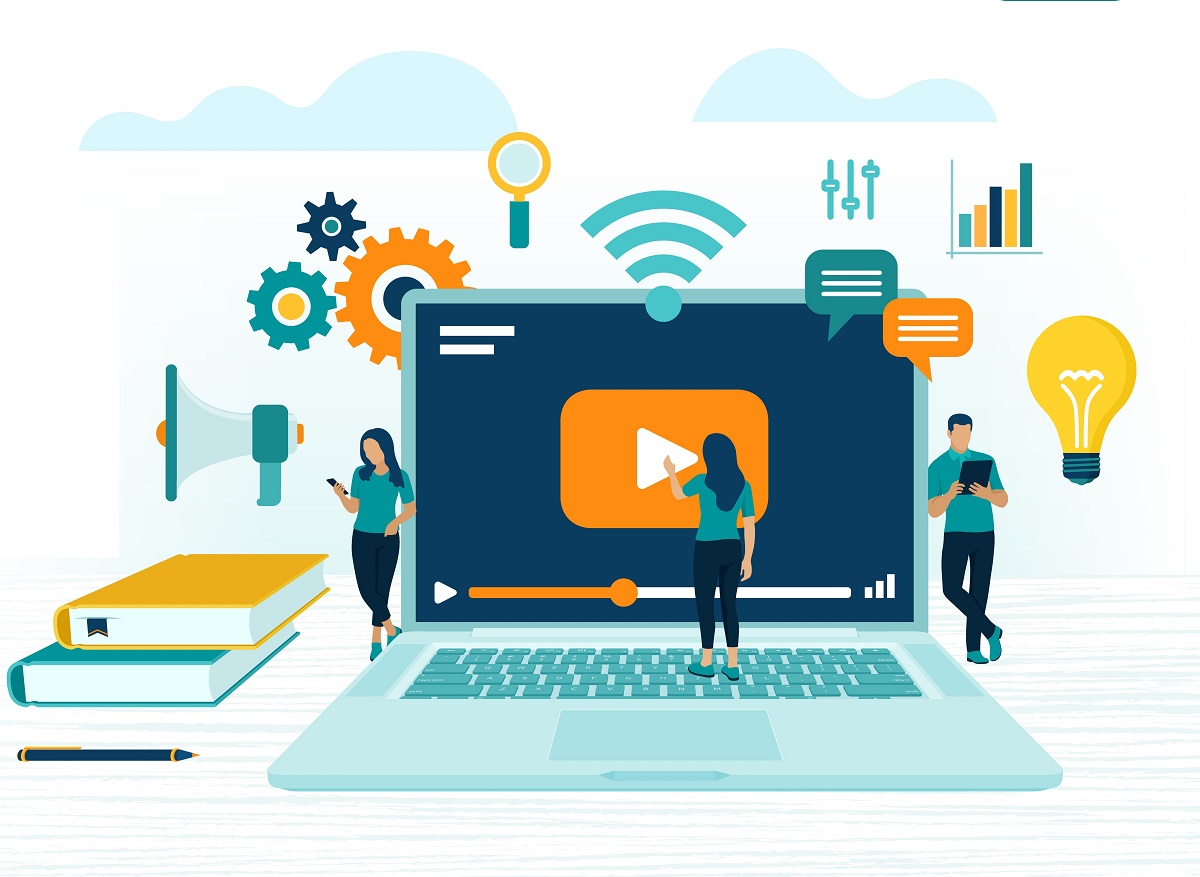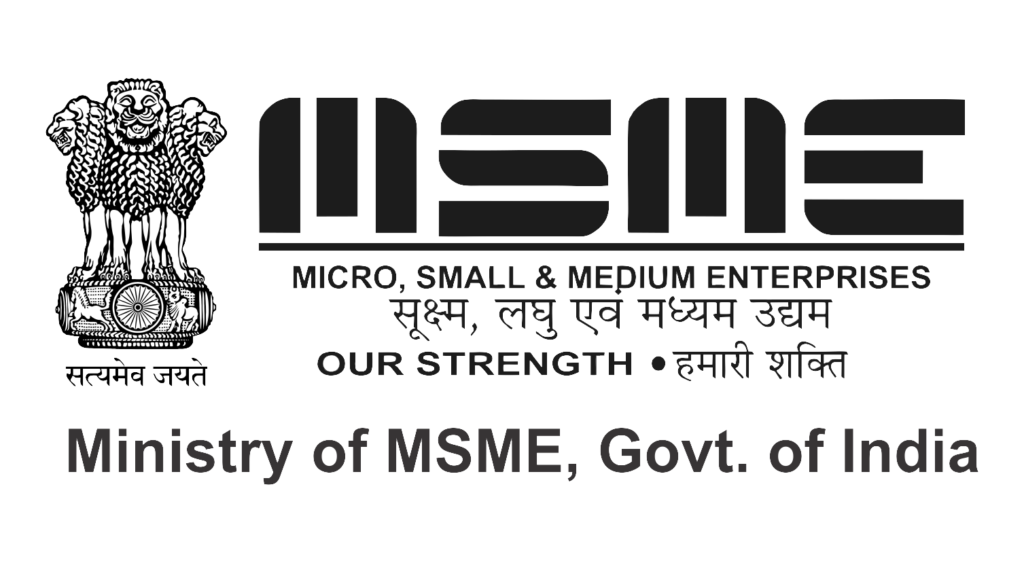LMS Development Company
Are you looking for an LMS development company? Softkingo has helped many clients integrate our LMS development services and digital transformations. We strive to create an amazing software product by focusing on fully functional applications, point releases, clean code, and manageable expectations.
With us, you will align your professional needs with modern teaching practices and pedagogical methods to provide students with new horizons for self-realization.

Learning Management System (LMS) Development
We have perfected the craft of custom LMS development. With our deep industry understanding and broad tech stack, we design enterprise LMS solutions that enhance learning and allow organizations to have more control over the learning process. An LMS helps organizations in efficiently strategize, manage, and deliver education to their employees and students. It is a full-stack eLearning solution that gives organizations control over the most granular details of the learning process.
Using next-gen technologies such as AI-based analytics, trend detection, progress tracking, etc. organizations can streamline the education process and make it more efficient.
Key Features of an LMS
LMSs are widely used in educational institutions, corporations, and other organizations to train employees, customers, and partners. They can be hosted on-premise or in the cloud, and are available in a variety of pricing models, including subscription-based and perpetual licensing.
Content Management
An LMS allows content creators to upload and organize various types of learning materials such as text, images, videos, and quizzes.
User Management
An LMS provides user authentication and authorization to allow only authorized users to access the system.
Course Delivery
An LMS delivers courses to learners in various formats such as self-paced, blended, or instructor-led. LMSs also provide tools to track learners' progress and performance.
Assessment Tools
LMSs offer assessment tools to evaluate learners' knowledge and understanding of the course material. These tools may include quizzes, exams, assignments, and simulations.
Reporting and Analytics
An LMS generates reports and analytics on learners' progress, course completion, and performance. This data helps organizations to identify areas for improvement and make informed decisions.
Collaboration
An LMS may have social learning features that allow learners to collaborate with each other and instructors, such as discussion forums, chat rooms, and video conferencing.
LMS Services
We are an e-learning products and services company that provides comprehensive e-learning solutions to small and large businesses and educational institutions. Softkingo Solutions has the expert team, equipment, and experience to get Softkingo LMS up and running in no time. Softkingo LMS Services offers you online personal training and e-learning services.
At Softkingo Solutions, we understand the importance of choosing the right Learning Management System, a feature-rich system that helps managers to learn optimally and most importantly, meets the unique needs of your business.
LMS implementation
Softkingo is a leading LMS provider with the ability to quickly set up your LMS and connect it to your existing business systems and content sources. The LMS implementation process consists of six main phases: planning, LMS configuration, system integration, course, and data migration, user acceptance testing, and rollout.
LMS Hosting
Softkingo LMS Development Services provides affordable, reliable, reliable LMS hosting services on various platforms and platforms to clients ranging from independent training organizations to K12 schools, higher education, and multinational corporations.
LMS Hosting
Softkingo LMS Development Services provides affordable, reliable, reliable LMS hosting services on various platforms and platforms to clients ranging from independent training organizations to K12 schools, higher education, and multinational corporations.
LMS integration and custom development
Softkingo e-learning experts can help you with LMS integrations like e-commerce, Salesforce LMS, video conferencing (Go Meeting, Webex, etc.), DocuSign, Sugar CRM, multi-user, etc. Our team of LMS service providers has the knowledge and experience to tailor any LMS to your needs.
LMS Expert Support and Help Desk
Softkingo LMS Services provides dedicated, reliable, and responsive LMS support. Our participation in the eLearning community helps us understand the LMS program exceptionally well. Our experts can work with your business to solve any e-learning development problems, questions or needs in a timely manner.
LMS Expert Support and Help Desk
Softkingo LMS Services provides dedicated, reliable, and responsive LMS support. Our participation in the eLearning community helps us understand the LMS program exceptionally well. Our experts can work with your business to solve any e-learning development problems, questions or needs in a timely manner.
Types of Learning Management Systems
There are several types of Learning Management Systems (LMS) available on the market, each with its own unique set of features and capabilities.
Cloud-based LMS
A cloud-based LMS is hosted on the cloud, allowing learners and educators to access it from anywhere, as long as they have an internet connection. This type of LMS is easy to deploy, cost-effective, and requires minimal IT support.
Open-source LMS
An open-source LMS is a type of software where the source code is freely available to the public, enabling users to customize and modify the platform to meet their specific needs. This type of LMS is highly customizable and cost-effective, but requires a certain level of technical expertise to manage.
Mobile-based LMS
A mobile-based LMS is designed specifically for mobile devices, such as smartphones and tablets. This type of LMS is ideal for learners who prefer to access content on-the-go, and for organizations that have a distributed workforce.
Corporate LMS
A corporate LMS is designed for businesses and organizations to manage and deliver employee training and development programs. This type of LMS typically includes features such as compliance tracking, skill assessments, and reporting.
Academic LMS
An academic LMS is designed for educational institutions, such as schools and universities, to manage and deliver online courses and educational content. This type of LMS often includes features such as grade tracking, course calendars, and virtual classrooms.
Social LMS
A social LMS integrates social learning and collaboration tools into the platform, allowing learners to share knowledge and interact with each other. This type of LMS is ideal for organizations that want to promote a culture of continuous learning and knowledge sharing.
Learning Management System (LMS) Development Process
Developing an LMS from scratch is a complex process that requires technical expertise in software development, as well as an understanding of the needs and requirements of the organization and its learners. It is important to plan the development process carefully and to engage with stakeholders throughout the process to ensure that the LMS meets their needs and expectations.
Requirements gathering
The first step in LMS development is to gather and document the requirements of the system. This includes identifying the features and functionalities needed, as well as the user roles and access levels required.
Choose the technology stack
The technology stack is the combination of programming languages, frameworks, and tools used to develop the LMS. Some popular technology stacks for LMS development include PHP, Python, Ruby on Rails, and Node.js.
Create the database schema
The database schema defines the structure of the database used to store user data, course content, and other information. This includes creating tables, defining relationships between tables, and defining data types.
Design
Development
Testing
Deployment
Once the LMS has passed testing, it is deployed to a production environment where it can be accessed by users. This may involve configuring the system for specific user groups and integrating it with other systems.
Maintenance and support
After the LMS is deployed, it requires ongoing maintenance and support to ensure that it continues to function properly. This includes fixing bugs, updating software, and providing technical support to users.
Continuous improvement
The LMS should be continuously improved based on feedback from users and changes in the organization's requirements. This may involve adding new features, updating existing ones, and enhancing the user experience.
How Can an LMS Platform Be Used?
LMS platform can be used to provide access to learning content, track learner progress, and provide assessments and feedback. It can be used in a variety of settings and for a range of purposes, helping organizations and individuals to achieve their learning and training goals.
Training and development
An LMS platform can be used to deliver online training and development programs to employees or learners. This can include courses on topics such as compliance, safety, leadership, and technical skills.
Online education
Educational institutions can use an LMS platform to deliver online courses and programs to students. This may include K-12 education, higher education, and continuing education programs.
Compliance Tracking
An LMS platform can be used to track compliance training and certifications, ensuring that employees or members have completed required training and are up-to-date on their certifications.
Collaboration and communication
An LMS platform can be used to facilitate collaboration and communication among learners and trainers. This can include discussion forums, chat rooms, and video conferencing.
Certification Programs
Professional organizations can use an LMS platform to offer certification programs to their members. This may include courses and assessments that are required for certification or that count towards continuing education requirements.
Skills development
Individuals can use an LMS platform to develop new skills or to improve existing skills. This may include courses on topics such as programming, design, marketing, and project management.
Blended learning
An LMS platform can be used to facilitate blended learning, which combines online and in-person learning activities. For example, students may complete online coursework and then attend in-person workshops or labs.
Onboarding
An LMS platform can be used to deliver onboarding programs to new employees. This can include courses on company policies, procedures, and culture.
Frequently Asked Questions - Custom LMS development
The cost of custom LMS development can vary widely depending on several factors, including the complexity of the project, the features and functionalities required, the technology stack used, and the development team's hourly rate. Generally, the cost of custom LMS development can range from tens of thousands to hundreds of thousands of dollars.
However, to give you a rough idea, the cost of custom LMS development can range from $5000 to $10,000 or more. This cost typically includes the cost of software development, design, testing, and deployment.
It is worth noting that the cost of developing an LMS can also depend on the location of the development team. For instance, development costs may be higher in countries where labor costs are high, such as the United States or Western Europe, compared to countries where labor costs are relatively lower, such as India or the Philippines.
To get a more accurate estimate of the cost of developing a custom LMS, you should consult with our sales team and provide them with your specific requirements and needs.
A custom LMS (Learning Management System) can benefit a wide range of organizations and individuals who have the training and educational needs.
Here are some examples:
Educational institutions: Custom LMS can be designed to meet the specific needs of schools, colleges, universities, and other educational institutions. It can help in managing course materials, tracking student progress, and providing personalized learning experiences.
Corporations: Custom LMS can help corporations train their employees on company policies, procedures, and products. It can also help in providing compliance training, professional development, and skill-based training to employees.
Healthcare organizations: Custom LMS can be used in healthcare organizations to train staff on best practices, procedures, and compliance requirements. It can also help in providing continuing education for healthcare professionals.
Non-profit organizations: Non-profit organizations can use custom LMS to train their staff and volunteers on their mission, values, and goals. It can also help in providing education and training to the communities they serve.
Government agencies: Custom LMS can help government agencies train their employees on policies, procedures, and regulations. It can also help in providing training to the public on various topics such as disaster preparedness, health, and safety.
Overall, any organization or individual who wants to provide online training and education to their target audience can benefit from a custom LMS. It can help in delivering personalized learning experiences, tracking progress, and achieving learning objectives.
There are several reasons why you should use an LMS (Learning Management System). Here are some of the most significant benefits of using an LMS:
Centralized Learning: An LMS allows you to manage all your learning and training activities in one central location. You can easily create, deliver, and track training materials and assessments from a single platform.
Cost-effective: Using an LMS can be more cost-effective than traditional classroom training. It eliminates the need for travel, printed materials, and dedicated trainers. It can also help in reducing the time and resources required to train employees or students.
Scalability: An LMS can scale to accommodate the needs of any organization, from small businesses to large corporations. It can handle a high volume of users, courses, and training materials.
Flexibility: An LMS allows learners to access training materials from any location and at any time. This flexibility is especially useful for organizations with remote employees or learners.
Tracking and Reporting: An LMS provides detailed tracking and reporting capabilities that allow you to monitor learner progress and performance. It can help in identifying areas of improvement and creating customized learning paths for learners.
Personalized Learning: An LMS allows you to create customized learning paths for learners based on their skills, interests, and knowledge gaps. It can help in delivering personalized learning experiences that improve engagement and retention.
Overall, using an LMS can help organizations streamline their training processes, reduce costs, improve learning outcomes, and enhance learner engagement.
Yes, it is possible to integrate a Custom LMS with other applications. Custom LMS can be designed to integrate with other systems or applications, such as HR software, CRM systems, eCommerce platforms, or other enterprise software.
Integration with other applications can help in streamlining business processes, improve data accuracy, and reduce manual work. For example, integrating an LMS with an HR system can help in automating the process of adding new employees to the LMS and assigning training courses to them based on their roles and responsibilities.
Here are some common ways in which Custom LMS can be integrated with other applications:
Single Sign-On (SSO): Custom LMS can be integrated with SSO solutions such as LDAP, SAML, or OAuth. This allows learners to access the LMS using their existing login credentials, eliminating the need to remember multiple usernames and passwords.
APIs: Custom LMS can expose APIs (Application Programming Interfaces) that allow other applications to access LMS data or functionalities. This can enable seamless data exchange and integration between systems.
Webhooks: Custom LMS can send data to other applications using webhooks. Webhooks allow Custom LMS to send data in real-time when specific events occur, such as course completion or quiz results.
Custom Integrations: Custom LMS can be integrated with other applications using custom integration solutions that are specifically designed for the use case. Custom integrations can be more complex but can provide more flexibility and customization options.
Overall, integrating a Custom LMS with other applications can help in improving the efficiency and effectiveness of your organization's training programs. It can also help in achieving better business outcomes by leveraging the capabilities of multiple systems.
Hiring a skilled Custom LMS developer in the USA can be a challenging task, but there are several steps you can take to make the process easier.
Here are some tips to help you find and hire the right Custom LMS developer:
Define your requirements: Before you start looking for a developer, you need to define your project requirements. This includes determining the scope of the project, identifying the required features and functionalities, and establishing a budget and timeline.
Search online: Use online platforms such as LinkedIn, Upwork, Indeed, and Glassdoor to find Custom LMS developers in the USA. You can also search for development agencies that specialize in Custom LMS development.
Check the developer's portfolio: Before hiring a Custom LMS developer, review their portfolio to ensure they have the skills and experience required for your project. Look for developers who have previously worked on Custom LMS projects similar to yours.
Conduct interviews: Once you have shortlisted some developers, conduct interviews to evaluate their skills, experience, and communication abilities. You can use tools such as Zoom, Skype, or Google Meet to conduct remote interviews.
Check references: Before hiring a Custom LMS developer, check their references to ensure they have a track record of delivering quality work.
Define the project terms: Once you have selected a Custom LMS developer, define the project terms, including the timeline, budget, and payment terms. It's important to have a written agreement that outlines the project scope, deliverables, and milestones.
Monitor progress: During the development process, monitor the developer's progress and provide feedback on a regular basis. This will help ensure that the project stays on track and meets your requirements.
Overall, hiring a skilled Custom LMS developer in the USA requires careful planning, research, and communication. By following these steps, you can increase your chances of finding and hiring the right developer for your project.
The most important feature of an LMS (Learning Management System) can vary depending on the specific needs and goals of the organization or user. However, there are some key features that are generally considered essential for any LMS. Here are a few:
Course Creation: An LMS should allow for the creation of courses with various types of content, including text, images, videos, quizzes, and assessments. This feature should also allow for the customization of courses to meet specific learning objectives.
Tracking and Reporting: An LMS should allow for the tracking of learner progress and performance. This includes the ability to monitor course completion rates, quiz scores, and overall engagement. The LMS should also provide detailed reports on learner performance that can be used to identify areas of improvement and optimize training strategies.
User Management: An LMS should allow for the management of learners, instructors, and administrators. This includes the ability to add, remove, and edit user accounts, assign roles and permissions, and manage user data.
Mobile Access: An LMS should allow for access to courses on mobile devices. This includes the ability to create and view courses on mobile devices, as well as the ability to access and complete courses from mobile devices.
Integrations: An LMS should allow for integrations with other systems, such as HR software, eCommerce platforms, or other enterprise software. This feature should also allow for the exchange of data between systems and the synchronization of user data.
Overall, the most important feature of an LMS depends on the specific needs and goals of the organization or user. However, the features mentioned above are generally considered essential for any LMS.
The time it takes to develop an LMS (Learning Management System) can vary depending on a range of factors, including the scope and complexity of the project, the development methodology, and the resources available. Here are some general estimates for the different phases of LMS development:
Planning and Analysis: This phase typically involves defining project requirements, creating a project plan, and establishing a project team. The duration of this phase can vary depending on the size and complexity of the project, but it typically takes around 2-4 weeks.
Design: This phase involves creating the user interface design, course structures, and other visual elements of the LMS. The duration of this phase can vary depending on the level of customization required, but it typically takes around 4-6 weeks.
Development: This phase involves building the LMS using programming languages, frameworks, and other development tools. The duration of this phase can vary depending on the complexity of the system, but it typically takes around 10-14 weeks.
Testing and Quality Assurance: This phase involves testing the LMS to ensure that it meets the requirements and functions correctly. The duration of this phase can vary depending on the size and complexity of the project, but it typically takes around 4-6 weeks.
Deployment and Maintenance: This phase involves deploying the LMS to the production environment and providing ongoing maintenance and support. The duration of this phase can vary depending on the level of ongoing maintenance and support required, but it typically takes around 2-4 weeks.
Overall, the development of a custom LMS can take anywhere from 4-12 months or more, depending on the factors mentioned above. It's important to work with a skilled development team to accurately estimate the time and cost required for your specific project.







